Home security and safety precautions are essential to keeping your house and family safe from crime and other common safety issues.
While it may seem like a daunting task, there are 11 simple steps you can take to protect your home and family. Whether it is through DIY projects or hiring professionals – keeping everyone safe and secure doesn’t have to be elaborate.
1. Do a Quick Security Check Before Leaving
Locking doors, closing blinds and curtains at night, having a garage code that isn’t guessable and having new and updated door locks are all good ways to increase your home security.
Make sure that you relock your windows after you open them. If you have old windows that don’t lock well, installing new windows that lock and have safety elements is a good idea. Putting a wooden rod in the metal rail track will prevent older windows from opening and prevents intruders.
2. Beware of Safety Hazards Outdoors & Near Pools
Being in the backyard can be a great day-time activity, but there are a few things that can be safety concerns in the outdoors.
Hazards to look for…
- Put away gardening tools and toys after using them to prevent injury.
- Building an outdoor shed for storage of shovels, rakes and other equipment keeps them out of the way.
- Remember to cover and completely extinguish fire pits after use.
- Cover backyard pools or hot tubs when not in use
- Don’t leave children outside without an adult’s supervision.
It is important to teach children to swim in case of an accident. It is an important life skill to be able to swim, but it is especially important to know how if you have a body of water in your backyard. Both you and your children should talk and learn about water safety.
3. Talk About Fire Safety as a Family
It is important to prepare yourself and your home for anything that could happen. Fires are a common disaster to happen to a home, whether it is from a forest fire or within your home.
In-home fires can happen anytime, but with proper fire prevention and preparation methods, you can make sure that your home and family will be safe and know what to do in case of a fire.
Fire safety means having a designated escape route, teaching children to check for hot door knobs, stop drop and roll and the importance of getting out quickly.
Talking about fire safety every now and then will give you peace of mind and ensure your children are prepared.
4. Be Cautious When Using the Internet
When it comes to the security of your home, many people don’t think about internet security as something that should be protected against.
With new technology like smart speakers, tablets and smart TVs, there is technology in just about everything you use.
Making sure that you are browsing safe websites (such as websites with “.com”, “.org”, or “.edu” URLs) will decrease your chances of getting a virus or a hacker.
Teaching children online safety is important. Often, children try to play games and accidentally purchase items & subscriptions – or even click on ads that contain viruses.
5. Keep Personal Information in a Safe Place
Securing your personal information should be a top priority. Four ways to make sure your information stays secure are…
- Changing passwords often increases your cyber-security. It is also a good idea to use different passwords for different websites.
- Updating software frequently will keep your security capabilities updated too, such as firewalls to block viruses.
- Non-digital personal information should be kept in a safe place as well. Paper documents can be lost or misplaced easily, and in the case of a natural disaster, a safe ensures that they will be preserved.
- Investing in lock-boxes and fire-proof safes is a good idea to store documents like birth certificates, social security cards, insurance documents and other personal items.
6. Be Aware of Crime in Surrounding Areas
Being aware of potential crime and predators in your area is a good idea. You can look at websites to find out if there are sex offenders in your area and news sites for burglaries and other incidents near your home.
It is also a good idea to know where the closest fire stations and police stations are in case of emergencies. Teach your children how to dial 9-1-1 and when to use this emergency call.
Take time getting to know your way around your neighborhood, and exchange contact information with your neighbors in case of emergency. Remember to avoid walking alone at night and always be alert.
Joining online community forums like Nextdoor will help you connect with your neighbors and be in-the-know about happenings in the area.
7. Make Your Home Child-Proof
Baby-proofing can be a daunting task, especially for new parents. Here is a list of things you can do to make sure that your home is safe for your child.
These baby-proof items are sometimes difficult to install, so consider hiring a baby-proofing pro to install them for you.
8. Adjust for Elderly Household Members
Elderly safety goes hand-in-hand with child-safety, as they are at a larger risk for falling or getting hurt like children are.
You can install a hand railing in walkways and put things on lower shelving so that they are easier to reach. You can also add additional lighting and modify simple things like kitchen item placement.
Look at a checklist for elderly safety to ensure that your home is easily-accessible and safe.
9. Prepare Your Home for Holiday Leave
When you and your family leave on vacation, make sure that you also vacation prep your home for your time away.
You should…
- Leave a light on (like the front porch) so it looks like someone is home
- Close blinds and curtains so thieves can’t see inside
- Lock all doors
- Water plants
- Throw away food that will spoil while you’re gone
- Make sure trash outdoors won’t attract animals like bears and raccoons
- Unplug unnecessary appliances to conserve energy
- Make sure windows and vents are closed to keep moisture out
These precautions will ensure that your home is just like you left it when you return from holiday.
It is also a good idea to install a home security system so that you can be alerted to suspicious activity. This is a good thing to have whether you are on vacation or not.
10. Prevent Health Hazards by Being Proactive
Common health hazards that can occur in your home are mold, moisture and insect infestations.
Mold is a big problem if it isn’t caught quickly, and dangerous forms such as black mold can occur. It is a good idea to have your home inspected for mold, that way you will know whether you will need to take action or not.
To prevent mold from growing in your home, make sure to keep areas dry and clean up water spills quickly. Keep your home ventilated, if you notice condensation this is a sign that your humidity levels are too high and you are at risk for mold.
Insect and pest infestations can be prevented by keeping your home clean and tidy. Clutter and trash attract pests and are great areas for them to hide. Blocking entryways and sealing doors and windows will also keep pests out of your home.
11. Take Extra Precautions When Remodeling
Remodeling is a big job, and important safety concerns can go unnoticed in the wake of so many different tasks.
Things to look for when remodeling…
- Protect flooring and walls that you are not renovating with tarps or sheets
- Make sure to ventilate the area so dust doesn’t settle
- If there is an exposed area of your home, cover it so moisture won’t creep in
- Put tools like saws, drills and ladders away to avoid injury when not in use
- Keep elderly, juvenile and disabled residents’ safety in mind with renovation plans
- Remove dishes and food from the space during kitchen remodels
Following these steps will prevent health and safety hazards and ensure that your home renovation project will be finished safely.
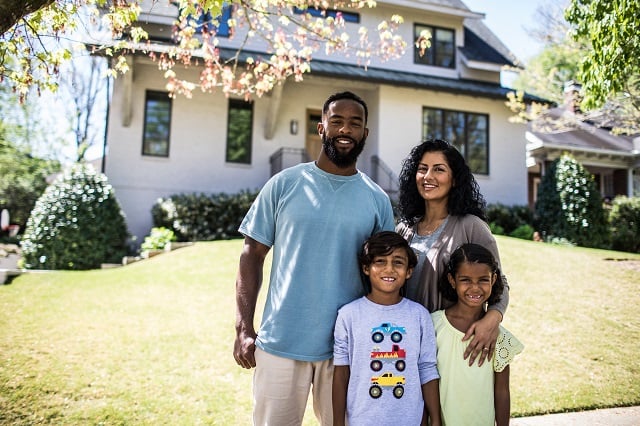
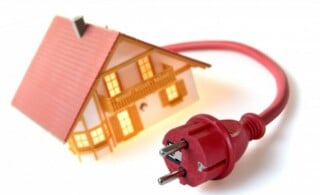 Staying Safe During a Home Power Outage
Staying Safe During a Home Power Outage 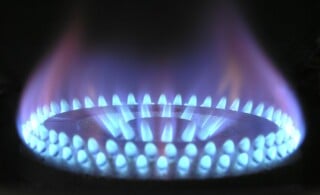 Home Improvements to Prevent Kitchen Fires
Home Improvements to Prevent Kitchen Fires 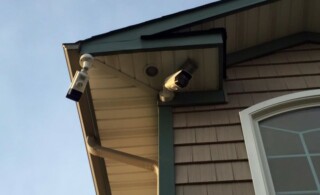 Surveillance Equipment
Surveillance Equipment 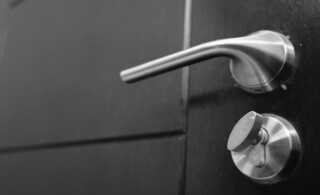 Home Security Alarms – Safety & Piece of Mind
Home Security Alarms – Safety & Piece of Mind 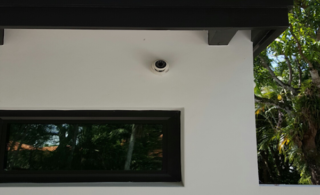 Home Security Companies
Home Security Companies 

You’re right, “Home security is essential to keeping your house and family safe from crime.” We just moved to a new area and would really like to make sure our home is safe and the locks are secure. Thanks so much for providing so many different resources to learn from to keep us safe. I appreciate it!